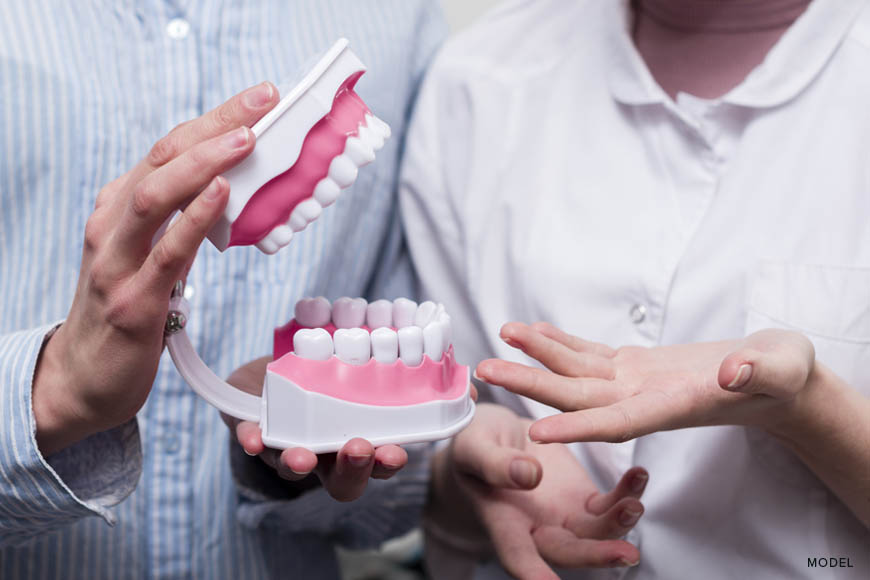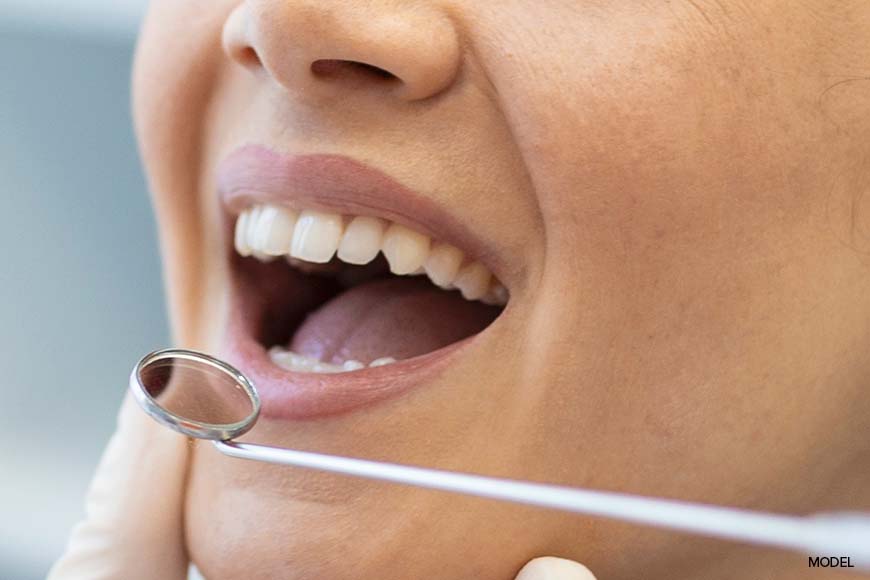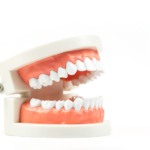Dentures are a common dental solution for individuals who have lost teeth due to various reasons such as age, decay, or injury. They provide a means to restore functionality and aesthetics to the mouth, enabling individuals to eat, speak, and smile confidently. When considering dentures, it’s essential to understand the difference between partial dentures vs. full dentures, as each serves a distinct purpose and offers unique benefits.

Recommended Article:
Types of Dentures: Finding Your Perfect Fit
Did you know there are several types of dentures, including full, partial, and implant-supported options? Each type offers unique benefits to suit various dental needs. Explore which type might be right for you.
What are Partial Dentures?
Partial dentures are dental prosthetics designed to replace one or more missing teeth. They consist of replacement teeth attached to a gum-colored base, which is often made of acrylic or metal. Partial dentures are customized to fit seamlessly into the mouth, blending with the remaining natural teeth for a natural appearance.
Types of Partial Dentures:
- Traditional Partial Dentures: These are removable dentures that attach to the natural teeth using clasps or precision attachments.
- Flexible Partial Dentures: Made of a flexible material, these dentures are more comfortable and less noticeable than traditional ones.
- Implant-Supported Partial Dentures: These dentures are secured in place using dental implants, providing enhanced stability and support.
What are Full Dentures?
Full dentures, also known as complete dentures, are prosthetic devices that replace all of the teeth in either the upper or lower jaw, or both. They consist of a flesh-colored acrylic base that fits over the gums and a set of artificial teeth. Full dentures restore the entire dental arch, providing support for facial muscles and improving the appearance of the smile.
Types of Full Dentures:
- Conventional Full Dentures: These dentures are placed in the mouth after any remaining teeth have been removed, and the gum tissue has healed.
- Immediate Full Dentures: These dentures are inserted immediately after tooth extraction, allowing patients to have teeth during the healing process.
Partial Dentures Vs. Full Dentures
Material Differences:
- Partial dentures are smaller in size and typically made of acrylic or metal, while full dentures cover the entire dental arch and are usually made of acrylic.
Coverage and Function Differences:
- Partial dentures only replace missing teeth and are supported by the remaining natural teeth, whereas full dentures replace all teeth in the upper or lower jaw, restoring the entire dental arch.
- Full dentures provide more extensive coverage and support for facial muscles, improving speech and chewing abilities.
Cost Differences:
- Partial dentures are generally less expensive than full dentures since they involve fewer artificial teeth and materials.
Pros and Cons of Partial Dentures
Advantages:
- Preserve remaining natural teeth
- Enhance chewing and speech abilities
- More affordable than full dentures
Disadvantages:
- Require regular maintenance and adjustments
- May cause discomfort or irritation initially
- Not suitable for extensive tooth loss
Pros and Cons of Full Dentures
Advantages:
- Restore entire dental arch
- Improve facial appearance and confidence
- Provide comprehensive tooth replacement solution
Disadvantages:
- Initial adjustment period required
- May affect speech and eating initially
- Requires regular maintenance and cleaning routine
Who Needs Partial Dentures?
Full dentures are necessary for individuals who have lost all of their natural teeth in either the upper or lower jaw, or both. They are also suitable for individuals with severe tooth decay or gum disease that necessitates the removal of all remaining teeth.
The Process of Getting Partial Dentures
The process of getting partial dentures typically involves several steps:
- Consultation: The dentist evaluates the patient’s oral health and discusses treatment options.
- Impressions: Impressions of the mouth are taken to create a custom-fit partial denture.
- Fitting: The partial denture is fabricated and adjusted to ensure a comfortable fit.
- Adjustments: Additional adjustments may be made to the denture to improve comfort and functionality.
The Process of Getting Full Dentures
The process of getting full dentures follows a similar protocol:
- Consultation: The dentist assesses the patient’s oral health and discusses the need for full dentures.
- Impressions: Impressions of the mouth are taken to create custom full dentures.
- Fitting: The full dentures are fabricated and fitted to the patient’s mouth.
- Adjustments: Follow-up appointments may be scheduled to make necessary adjustments to the dentures for optimal comfort and function.
Maintenance and Care for Partial Dentures
To ensure the longevity and effectiveness of partial dentures, proper maintenance and care are essential:
- Cleaning Routine: Partial dentures should be cleaned daily with a denture brush and mild cleanser.
- Tips for Maintenance: Avoid chewing on hard or sticky foods, and remove dentures at night to allow the gums to rest.
Maintenance and Care for Full Dentures
Similarly, full dentures require regular maintenance and care to prolong their lifespan:
- Cleaning Routine: Full dentures should be cleaned daily using a denture brush and gentle cleanser.
- Tips for Maintenance: Soak dentures overnight in a denture cleaning solution, and brush the gums and tongue to remove plaque buildup.
Common Misconceptions About Dentures
Despite their benefits, there are several misconceptions surrounding dentures:
- Myth: Dentures are uncomfortable and ill-fitting.
- Fact: Properly fitted dentures should feel comfortable and natural in the mouth.
- Myth: Dentures are only for the elderly.
- Fact: Dentures can be used to replace missing teeth at any age, depending on individual dental needs.
Book a Consultation with Us!
Begin your journey toward attaining the radiant smile you’ve been dreaming of! Reach out to our skilled team at Madison Dentistry & Implant Center now to arrange your initial consultation. Our compassionate dentists and dental experts are here to evaluate your oral health, understand your desires and concerns, and develop a personalized treatment strategy tailored specifically to your needs.




